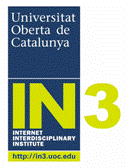Preparing Women for Dead-End Jobs? Vocational Education and Training (VET) for Information and Communication Technology (ICT) Jobs

Abstract
This paper discusses the role that vocational education and training (VET) in ICT subject areas plays in contributing to the gender and social class structuring of ICT occupations, focusing in particular on education and employment data from the UK. The paper also makes reference to similar data about ICT VET in Germany and Japan to argue that the new areas of ‘soft’ ICT skills — in education and in occupations - have become feminised, and channel women into low skilled and low paid work. Unlike university level ICT education, which has opened opportunities for women and students coming from families with no experience of higher education, sub-degree level ICT VET seems to be continuing to reproduce gender and socio- economic class within and through ICT occupations. I argue that those concerned with gender equity research and interventions in ICT need to work with an analysis that disaggregates what are now appearing to be quite different skills sets, and different career opportunities often misleadingly conflated under the umbrella term ‘ICT’. I also argue for better analytical models for the gendering of ICT than those offered by the ‘leaky pipeline’ or ‘critical mass’ models, and for new analyses that would incorporate both a structural analysis and new ways of looking at women’s choices, such as Hakim’s ‘orientation to work’.
Keywords
ICT, vocational education and training, VET, social class, apprenticeships, vocational qualifications, women students